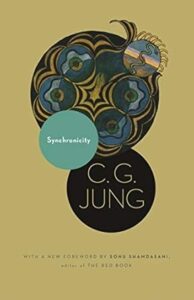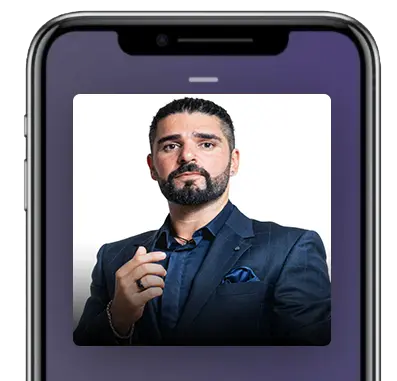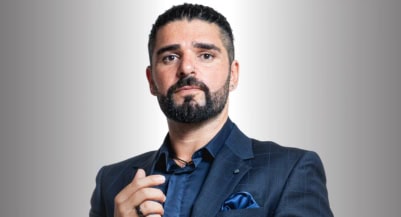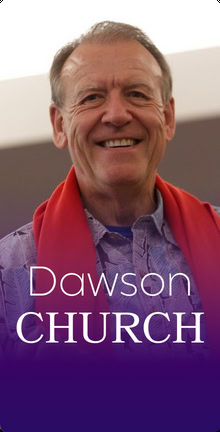In this Episode
- [02:07]Xavier Crow recounts his journey into mentalism, beginning with a childhood fascination with magic and evolving into a professional path.
- [05:39]Xavier reflects on how intention enhances his abilities, emphasizing the power of a service-oriented mindset.
- [10:09]Xavier breaks down the concept of cold reading, demonstrating how subtle cues and body language guide his insights.
- [11:29]Stephan inquires about telepathy, prompting Xavier to recount his experiences and the difficulties of validating it scientifically.
- [30:17]Xavier distinguishes between mentalism and mind reading, highlighting the importance of verbal finesse and observational prowess.
- [36:30]Xavier outlines the core principles behind hypnosis—anticipation, belief, and action—and ties them back to mentalism.
- [39:27]Stephan explores lucid dreaming with Xavier, who discusses his personal struggles with sustaining awareness during dreams.
- [46:34]Xavier offers a conversational technique: tuning into the “gold” within others’ words to deepen connection and understanding.
Xavier, it’s so great to have you on the show.
Hi, Stephan, thanks for having me. I really appreciate it.
First of all, let’s talk a bit about how you got into mentalism and this form of entertainment, mystifying and surprising audiences.
Prior to the age of five, I was fascinated by magic tricks and magic shows. I saw a few when I was a kid, which led me into a continuing process of learning magic just for fun. It wasn’t till I was about 19, I think, that I met a full-time magician. I didn’t know that was a possibility. Actually, I always thought I had to get a regular job, which pushed me in the direction of entertainment.
By the age of 23, I quit full-time work and started doing magic shows in bars, pubs, and restaurants. The evolution of magic is to learn more, get better, perfect the skill, and learn more again. That got me into exciting things like hypnosis and neuro-linguistic programming (NLP). During the pandemic, when many live shows were canceled, I decided to take a couple of months and reread all the psychology books I had and the mentalism books I had. I put together an online virtual show for mind reading, or a mentalism show, and that was so successful during the pandemic.
For the next three or so years, I was performing virtual shows doing mind reading rather than magic, because I thought that was a bit more interactive. That kept going once the pandemic was over. I kept going with the mentalism because I was really enjoying the response I was getting from the audience. I needed fewer props, and I was really enjoying the fact that I could use the spectators’ minds and leave them with something to think about, other than the fact that it was up his sleeve, or I had seen how he might have done that in mentalism. It was like, “How did he know it was in my head?” I got excited about the prospect of continuing in that direction, and I’ve been doing that ever since.
Are you familiar with the show The Mentalist? It’s a TV show that was years ago, and I don’t think it’s been canceled, but it’s an interesting show. Have you seen it?
It was interesting. I actually re-watched that during the pandemic for a bit of inspiration. That was quite fun. I’ve seen the entire series twice, and people ask me that question quite often, because they wonder if those things can really be done. There’s a famous mentalist who was on set advising the crew and the main character on how to be more realistic as a mentalist. Some of the things that he did, some of the things that I actually can do, and that was the exciting part about learning mentalism, was like, “Could I really do the things that these people are pretending to do or showing that they can do?” and the answer is actually yes. It just takes a lot of practice.
One scene that pops into my mind that’s fun from that show was when he somehow ended up in prison. I don’t remember how that happened, but he was playing poker with other inmates, and they were playing for real-world money, cars, and things like that. Outside, if they didn’t have the money, if they were bluffing about having it, then they’d get killed. It was a serious game, and he bluffed.
He showed a tell to another player who called him on the bluff, and he said, “You have a real obvious tell, you know.” Then he laid down his cards, and it turned out that The Mentalist guy had the winning hand. The guy totally took the mentalist’s bait without realizing what was going on. That was pretty fun. Do you play poker? Do you win tournaments and things like that?
When I use my mentalism skills to gain something, it automatically shuts down. When I use it for the right reasons, I’m very sharp and observant.
I try to avoid gambling. When I play poker, I play for fun with friends. The funny thing is that when I’m trying to use my mentalism skills in a situation where I’m trying to gain something, it’s almost like it automatically shuts down. When I use it for the right reasons, I’m very sharp and observant. However, when I sit at a poker table and say, “Okay, I’m a mentalist, I’m going to use my skills to win,” it doesn’t work as well for some reason. I think it has something to do with the intention behind it.
Intention is everything. If you’re in a place of service and service mode, then the universe conspires to make everything happen for you. If, on the other hand, you’re in self-service mode, then you get all sorts of obstacles thrown in your way. Can you think of any other instances where that has occurred?
Where it shut off and doesn’t work out?
Yeah, where just obstacles show up, things don’t go right. You’ve got this incredible set of skills that suddenly you’re not able to utilize, or things just go sideways, regardless of all the skills, abilities, and expertise.
Indeed. When I’m meeting people day-to-day, it could be in a dating setting, when I’m meeting girls, or, for example, in a business setting when I’m meeting potential clients. When I find myself consciously trying to get something out of an interaction, I notice that I’m not as sharp, not as smooth, and the interaction isn’t as easy as when I’m trying to add value in a situation.
If I’m going up to approach a girl, for example, in a party or for a business networking event, and I’m approaching a potential client or a potential business partner, I find that when I’m adding value to them, and I observe the way I’m interacting with them, I’m using all of the skills at my disposal, and they’re all coming out and flowing naturally. I don’t have to think about it, I don’t have to force it.
When I find myself consciously trying to get something out of an interaction, I notice that I’m not as sharp, not as smooth, and the interaction isn’t as easy as when I’m trying to add value in a situation.
I don’t have to think to myself, “Use this language pattern to make them say yes or convince them of my abilities so that they’ll work with me or date me,” or whatever it may be. I find that when I’m there to add value, I’m truly listening to people, and I genuinely want the best for the person in front of me. All the skills I have are available to me. That’s hands down, every single time I go there looking to get something, it’s usually when it starts to fail, because I start to force things. When I’m forcing it, it just doesn’t work. I’ve noticed it quite often.
That makes sense. Many years ago, I had to learn how to date. After I got divorced, I went two and a half years without a single date, and I learned things like a bit of cold reading. I learned some pickup techniques and stuff from Strauss. I watched his training. I read his book. I actually joined a mastermind group of his and learned some of these techniques in person.
Thankfully, I surrendered to God and I asked for help. Then, on the same day, which was December 7, 2012, I found my soulmate. She was introduced to me by a mutual friend twelve hours after I prayed for her to show up.
I’ve gone through a similar process to you. The idea of being good with women is enticing, and I’ve definitely looked into that as well. I’ve read books. I’ve joined some classes and seminars to focus on that. And that’s another example of when I try too hard to create something. It’s a taking rather than a giving. And all of my best success in life, in general, with people, has been when I’m giving rather than asking them to give.
Most of the time, if you’re genuinely giving, which means not asking for anything in return, and you’re giving authentically, the people that you interact with seem to want to give back, and it could be anything. They could give anything back. I don’t have to manipulate people to give me what I want. If I’m truly genuine to them and I’m offering myself authentically to them, they’ll give me things that I want because it’s mutually beneficial. They’ll want to give me things, and I won’t have to ask for them, and it’s real magic, if you ask me.

Actually, it would be helpful for a listener to understand the difference between these different terms: magic, mentalism, mind reading, cold reading, and telepathy. These are not, I think, well-defined in society. They’re not as common as cold readings, and may not even be a term our listener is familiar with.
Cold reading is the idea that you can make an observation about somebody, and based on that observation, tell them things about themselves that you wouldn’t necessarily know without asking them. I’ll use a simple example. You’ll notice a wedding ring on someone’s finger. You can assume they are married. That is a cold read, but it’s very obvious. One other time, you might notice a dress sense, the way they style their hair, the thickness of the frame of their glasses, or the color of their makeup.
You can make educated observational guesses about who they are based on what you see. There are several ways to perform cold reading, including using canned lines. They’re called Barnum statements, where you say one thing and then say the opposite of that thing, as if both of them are true. I could say to somebody, you seem like the sort of person who is very outgoing, but from time to time, you go inward and you’d rather be completely alone.
Now, I’ve said you’re outgoing and you’re shy at the same time. The person listening will hear one of those things and agree with it, saying, “Yes, that’s me.” That’s one form of cold reading. The other one, of course, is the first one I spoke about, which is taking a look at somebody and making an educated guess based on how they present themselves or how they hold themselves. Someone’s language also plays a significant role.
How does that differ from legit telepathy, where you’re reading the person’s mind? In that mastermind of Neil Strauss, he actually brought in remote viewers for one intensive session. Like each intensive was the theme. There was one kind of emergency training: how to break out of zip ties, what to do if you get zip-tied, or if you get handcuffed, how to pick a lock, and all this other crazy stuff. This is one where we learned about remote viewing and various forms of psychic abilities. It was pretty fascinating. Well, first of all, do you believe in telepathy? Do you think that’s a real, legit thing?
That’s a really tricky question to answer. I’ve had experiences where I’ve not thought something was going to happen. I felt like I had a knowing that something was going to happen and that it happened, but because it’s not consistent, and because it’s not tangible, I can’t be sure that it was telepathy. I’d really like to believe that telepathy exists, and I see examples of it. For example, my mom will call me and ask if something’s up, just at the moment when something’s happening in my life, and I consider that a form of telepathy, but I can’t be sure it’s telepathy or just perfect timing.
I haven’t had an example in my life. That’s a definite, yes, telepathy is real. When I see people, for example, walk into a room, I know that based on what I know about human behavior and my understanding of body language, I can make very quick assessments of what I’m seeing in front of me, and it’s happening. I know that it’s happening unconsciously. It’s happening at a million miles per hour, and I’m having it come up as an intuitive thought. I also know that the better I get at reading people, the more intuitive I seem. I can’t be certain that my intuition is something coming from somewhere else or it’s coming from these unconscious processes that I’m having. It could be one or the other or both.
I think you should try remote viewing and take a class in it, and you’ll find that you’re much more telepathic than you think, because if you’re not getting cues from the person, because both people have their cameras off, and one person is sending, and the other person is receiving. You’re receiving and you’re drawing what you are kind of tuning into, that might be something they’re looking at in their room, or a memory they’re remembering and thinking about, and you draw that. It’s surprisingly similar to what they were envisioning.
You’re not speaking to each other, so you don’t have any verbal cues either. It’s kind of hard to argue. I’ll give you a fun example. This actually happened with a past guest. It wasn’t on the podcast, but her name is Laura Stinchfield. She’s a famous pet psychic. I know she’s legit from a mutual friend who referred me to her, and I’ve gotten multiple readings from her. We were raising a pet duck that we didn’t intend to have, but we had a duck in the backyard, and one duckling was trying to escape. The father, especially, was trying to kill it.
If a coincidence is happening, then you're at the right place and the place you should be. Otherwise, it couldn't have happened. Share on XWe saved this little duckling that its mother abandoned, and then the father kept trying to kill it, so we took it in. And it was probably a year old when I did this reading with Laura. So at that time of the reading, the duck, whose name is Coco, was under the mango tree. I was outside sitting on Zoom or Skype, or whatever it was, with Laura.
As soon as she connected to Coco, he came from under the tree and sat right under me, so he came, like, I don’t know, from 40 feet away, and then sat under my chair the entire time of the reading that she was talking to him, and then as soon as she disconnected, he left. That’s pretty freaky, but here’s where it gets even more awesome. One of the things she was talking to me about was what he wanted, such as a sprinkler. How does he know what a sprinkler is?
We didn’t have anything like that. He wanted a sprinkler, and he wanted a wheelbarrow. He sent a picture in her mind of a red wheelbarrow, and she’s like, “It’s kind of like a Radio Flyer, sort of wheelbarrow. It’s bright red. He’d love some straw in it so he can sit in it.” I’m like, “What? Where’s he coming up? I’ve never seen this before. It’s not in our yard. It’s not in our neighbor’s yard.”
Well, it turns out that months later, I discovered it under the mango tree way in the back. This is a rented house that we weren’t completely familiar with, but buried under a bunch of leaves and stuff was a red wheelbarrow. By this time, he’d actually flown the coupe, and he was living on his own. Sometimes he’d come back, but at this point, he had left pretty much permanently. We had raised him in the house, and then we let him outside during the day. Eventually, he decided to stay outside for good. By this time, there was no point in my finding the real wheelbarrow other than to let me know that this was not made up.
Every action I took led me to this point, which doesn’t seem random.
That’s fine. That sounds like a wonderful experience. I’m sure that if I had that experience, I’d be second-guessing my original answer.
I have lots of them.
I’m open-minded. I say nothing. We’ll never say something doesn’t exist. But there are times when I give a more diplomatic answer because I don’t have my own reason to believe it.
Personally, what I find is that the more you set aside your disbelief, it’s a willing suspension of disbelief, and just be open-minded about the possibilities. Then, when unusual things happen, you write them down. You’re journaling. I have a gratitude journal that I write in every day. I write to God, and I put the sort of stuff down there. Amazing things happen, and I’m capturing this not just for my own purposes, but mostly to appreciate God. Another way that I can convey my gratitude is through journaling. I never used a journal. But now I do it every day, and I’ve got, I don’t know, 1700 pages already.
There was a moment when I was young, and this experience has continued with the psychic aspect. There was a moment when I was young. I was in primary school, and we were given spelling words, and the kids who were better at spelling were given more difficult words. I was in that group. I enjoyed spelling. I enjoyed remembering how words were written. I’ve always loved language. And there was a particular word called “euphemism.”
I was the one who asked the teacher what it meant, because I wanted to understand its meaning. She said euphemism is using metaphor and analogy to describe something else. Instead of saying, “I’m going to the toilet,” you could say, “I’m going to the little girl’s room,” or “I’m going to powder my nose.” She’s saying what she’s saying without saying it. I never forgot that, because that evening, I went home, finished my homework, and was allowed to turn on the TV. I turned on, I think, Home and Away or something similar, which was a popular show here in Australia.

As I turned it on, there was a scene in a bar, and the girl looks at the guy she was with, and she says, “Excuse me, I’m going to the little girl’s room to powder my nose.” As a kid, that was my first experience with what’s called coincidence, and I didn’t know what it meant. I didn’t know why I saw it, nor why it was so accurate, and exactly what I had seen during the day. I actually wondered if I was psychic. I would have been six or seven years old, and I thought it was a strange example to think I was psychic, but that’s how I took it as a child.
Well, maybe I remember thinking as a child, I don’t want to be psychic because I don’t want to know when my parents will die. And I remember that memory so clearly because it was an emotional memory, and I’ve always wondered whether or not I’ve pushed away potential psychic ability because of that six-year-old thought process. Is or whether or not psychic ability exists. So it’s a question I’ve had multiple times. Am I pushing it away, or does it not exist?
Yeah, now you’re pushing it away. You shut the door. It’s possible. Yeah, I see the door shutting. One of my guests is another psychic, a psychic medium. Mark Nelson is a well-known psychic. He actually saved my family member’s life while I was interviewing him. You can’t make this stuff up. The timing of it all was incredible.
I’ve spoken about it before on the podcast multiple times, so he had an experience that changed him quite drastically as a child. As a young teenager, I believe his father got murdered, and then his father showed up to Him in spirit after he died, to let him know he’s okay. And Mark was frightened by this, and he said, I don’t want you to come back. This freaks me out. And so he boomed, shutting the door on his psychic abilities.
It was decades later that he was finally healed enough inside to say, “I’m actually open to this.” See, we’re all psychic. We all have this ability to tune in to the unseen world. The unseen world is actually more real than the seen world. This is the dream. So, if you’re open to it, you might consider cracking open the door again, as Mark did. Now, you know, he’s on TV shows. He’s got a career as a psychic medium.
Listen for the gold in any conversation. Share on XMy psychic abilities, which I didn’t know I had at the time, lit up to let me know that I needed to interview him because I had cleared the duck in all my previous interviews. I had cleared the deck for three weeks, four weeks, so that I could move from California to Florida. This is in 2020, and for whatever reason, when I met this guy in the Zoom breakout room, he said, “I’m an advertising guy.
I do marketing stuff, oh, and I’m also a psychic medium,” like, what’s that second bit? And I just felt so compelled, I had to have him on my show, even though I was trying to move. I’m like, “I gotta have you on my show right away.” And it just so happened in the same hour that I was interviewing him, this family member was having a stroke and didn’t believe it.
Incredible story.
I have a lot, 1,700 pages of material.
Yes, I need to pull out my journal after this conversation. I have a question for you. How do you see your psychic ability being used? What is present for you when you are using this gift?
It’s constant. It’s every day. It’s all day, as if I’m walking in two worlds simultaneously – this world and the upper world. I was coaching a client yesterday and reviewing some spiritual and Kabbalistic information. Before the session began, I was reading four different excerpts from a Kabbalistic text that dates back approximately 500 years. The last one I was reading was about dreams, interpreting them, and understanding their origins and the reasons behind certain types of dreams. It just lit up for me when I was reading it.
It was the last thing I read before my coaching call, and I got a pretty strong message. I needed to bring up dreams with him, and, surprise, surprise, he was in the middle of watching Inception. The whole track of half of the coaching call went down this path of dreams, and so forth. It was perfect timing, and brought out a conversation that needed to happen, that I was being gently nudged to bring up. This happens on a constant basis.
This is how we’re supposed to live: through synchronicities and understanding that we’re being guided in every moment. This is the real reality. This is akin to synchronicity, a form of coincidence. All that is not a coincidence. It’s not random. Nothing’s random. And you just lean into that and let your guidance from above direct you in everything from your big goals in life to what you pick up at the store.
I prefer the word synchronicity over coincidence, which came to me much later. That childhood memory helped me understand the concept of coincidence, and I have referred to it as such ever since. To take away the fear of what happened that day as a teenager, I realized the coincidence couldn’t have happened if I weren’t exactly here at this exact moment. And so I started to redefine it, as if a coincidence were unfolding; then I was in the right place, and the place I should be.
Otherwise, it couldn’t have happened, and the probability of it happening is so infinite that it’s actually exciting that a coincidence happened, not a scary thing. And then I found the word synchronicity, which actually sounds better, because coincidence sounds random, and I don’t think it’s random. Every action I took led me to that point, which doesn’t seem random at all.
Nothing is like that; that’s the thing. This is a movie set, and everything on the set has been placed there intentionally. Nothing just randomly pops onto the movie set. Indeed, there’s a structure. Do you know the history of the term synchronicity?
I don’t think I do.

Oh, this is a fun one. It’s a term coined by Carl Jung, a renowned psychoanalyst and a brilliant individual. He had an experience that took him down this incredible path. He was doing a psychoanalysis session. The lady he was analyzing was doing a dream recall for him, and they were discussing dream recall and dreaming. She was talking about a scarab necklace at the moment of the dream. The gold scarab necklace was particularly meaningful in the dream.
At that moment, there’s a tap on the window, and there are three stories up in his office. Who’s tapping on the window outside? How can you do that? And there were no trees nearby that were able to knock against the branches against the window, and it was an incessant tapping. It was really disturbing. It was like, “Come on, open the window,” as if somebody were trying to get in.
Eventually, he had to stop and check the window. And guess what was at the window? Scarab beetle. He opened the window and let the scarab beetle in, then grabbed it and presented it to the lady, saying, “Here’s your scarab.” And it blew her mind, of course, it changed her life, and it changed Carl Jung’s as well. He decided to write an entire book called Synchronicity, coined the term, and conducted extensive research on it.
I have to look that book up. That sounds like a good read.
I think it’s written in German, so I’m sure it’s been translated, but yeah, once you’re open to this stuff, you will not have a regular day the rest of your life, you’ve changed your whole world, and once you’re open to talking about it, the most amazing things happen. Other people will share their wild experiences that defy all logic. I recall sitting next to an older gentleman at a Genius Network annual event.
I didn’t really know him, but I was excited about all the abilities that had come online. This was a few years ago. I was sharing some stories with him. He shared one with me. He said he was at a grocery store in line, the guy in front of him, who was at the register at the moment paying, he turned to him, this guy and turned to the man I was talking to and said, “Your mother wishes you a happy birthday, and she loves you.”
The way you listen to people makes a difference to how they view you and how you view them. Share on XThey had no other interaction. And of course, it was his birthday. The guy couldn’t have possibly known it was his birthday, and his mother had passed. He doesn’t know who the guy was. He didn’t get his details or anything. That was the only interaction they had. He left. The guy was just blown away. He never forgot it. Obviously, this is the reality of the real world that people are not willing to share publicly. But we’ll talk to you privately about it, and like, yeah, I’ve had experiences like that. It’s fun.
Yes, I find myself having similar experiences, but I name them something else. I think the resistance to the word psychic is the main thing there. But there are many, many examples of what I like to call being in the flow, where I know what I should be doing based on an inherent knowing, not a thinking. And my decision to move, or my decision to create or to make or to act, is coming from a deep place, and I act upon it as quickly as possible. And the fortunate incidents that come along with it, serendipity, if you will, are testament to that action. It shows me that if I’m coming from the deepest place, I can’t go wrong. I’ve just never called it psychic ability. I’ve always called it flow.
Well, like I said, if you crack open that door you closed at age five or six, you’ll find that some pretty miraculous things will start happening. But we totally digressed here. Let’s go back to finding these different terms for our listener or viewer. So you talked about cold reading, and how is mentalism different from mind reading?
A mentalist creates the illusion that they’re reading someone’s mind.
What do I like to tell people about mentalism? I’ve actually started using a phrase when I talk about mentalism, and I say thought leading or thought reading. So, mind reading, you could walk into a room and I could tell you instantly what you’re thinking. And that would be mind-reading. That is the illusion that a mentalist creates. A mentalist creates the illusion that they’re reading someone’s mind.
What’s happening is the mentalist is using linguistic acrobatics to direct a thought process in a certain way and then tell the observer what they’re currently thinking of once they’ve been led down a path. So, to get someone to think something, you have to use language in a certain way to get them to think within a realm, and then you use your powers of observation and deduction and anticipate what it is that they could be thinking.
Once we’ve led the thought, we then read the thought, and the observer calls it mind reading. But really, there’s a whole bunch of other things happening. It’s an illusion. It’s still in the realm of Performing Arts, mentalism, however, the techniques when it comes to magic are slight of hand and optical illusion, whereas the techniques in mentalism are slight of language, and they are also based around real life techniques, such as reading body language, using tone of voice in a particular way, picking up on tones of voice.
If I’m in a room with somebody, I’m at a point now, especially in a performance setting, where I can ask certain questions, and based on those questions and the response I see on the person’s face or in the person’s body, discover what their answer to that question is. But it’s all within the realm of entertainment. So I had to learn how to read people’s faces and read body language. Face reading is a concept discovered by Dr. Paul Ekman, who identified 40 or 42 distinct facial expressions that are universally recognized.
Certain muscles in the face are activated every time one of the experiences happens to the individual. They’re called microexpressions.
They happen everywhere. Happiness looks the same in every country, anger looks the same, fear looks the same, and contempt looks the same. Specific muscles in the face are activated every time one of these experiences occurs in an individual. They’re called microexpressions. They occur very quickly, and some are large, while others are very small. As a mentalist, we ask certain questions and observe the person’s facial and bodily reactions to gauge their thoughts in that moment.
Then we lead them in a direction we want them to go, and then tell them what we’re thinking. It’s an art form in itself, and I’m always striving to improve at it. My first real understanding of microexpressions came about through studying Dr. John Gottman. Do you know who he is?
Yes. I had him and his wife on the show. It was a fascinating episode.
He’s one of the world experts on marriage and relationships, and by studying these micro expressions, he became so good that he could tell with 95% accuracy if a couple were going to be together five years later or divorced, and he just needed to see them in conversation, casual conversation on video, watching the video for one to two minutes, and then he Could tell with 95% accuracy looking for those micro expressions. Yeah, that’s right, his name did come up a lot, and I thought that was incredible, just to think someone was able to do that now, watching two people have a conversation and then saying that’s not going to last, that’s a next-level skill.
Yeah, it’s pretty wild. Something occurred to me while we were talking that I’d like to explore a bit. There’s an airplane safety video that stars a mentalist, Lior Suchard. This is EL AL Airlines. One of the things that popped into my mind about this video is that, at the beginning, he’s flashing through a deck of cards, and he’s saying, “Pick a card, and I’ll tell you which one it is at the end of the video.”
At the end of the video, it’s eight of hearts, and it was, of course, the card that we had selected. He managed to have that card jump out or be more prominent when he was just flipping through the whole deck very quickly. And I’m curious, is that, in your estimation, part of mentalism to manipulate card decks and things like that, and then show that the card that they picked is the same one that you know, it is like you’re reading their mind. And is that more magic?
Without upsetting the mentalists and magicians out there? I’ll keep my answer somewhat vague. However, you’re in the right.
Okay, well, I kind of figured out where your answer is, and just from now,
That was, again, the diplomatic answer. A lot of mentalists started off doing magic, so it’s usually a lead on from magic. Magic is often perceived as gimmicky, while mentalism appears more elegant. There’s a lot more finesse that comes with it somehow. So you will find a lot of mentalists have an ability with cards, having said that, being able to force information onto people is something that helps with the entertainment side of mentalism.
Magic is often perceived as gimmicky, while mentalism appears more elegant.
A good mentalist should be able to force information onto an unsuspecting spectator without the spectator realizing that the information was forced. And I think that if you were watching a video and he managed to get you to think of a card, and everyone thinks of the same card, then, of course, he’s using some forcing technique. I won’t divulge how he’s using it, but however he did it, it was so good that you could see it on a video, and it would still work. And I think that’s a wonderful, wonderful talent that he’s got. He’s actually one of my favorite mentalists. He’s very entertaining.
You’re familiar with him? I didn’t know if he was famous outside of Israel or not.
He’s been on a lot of American TV as well, Jimmy Kimmel and things like that. He’s done great for himself. He also has a large stage show that he performs around. I haven’t had a chance to see live, but I’d love to.
I’d love to hear more now about hypnosis and NLP, and how that differs from mentalism, and how maybe you incorporate some of the things that you’ve learned through hypnosis training and NLP training in your shows, and how, also, they’re quite different from just thought leading.
Hypnosis was a very interesting subject for me. I read everything I could on the subject, and I completed certifications in hypnotherapy as well as stage hypnosis, so that I could gain a deeper understanding of the topic. It’s very fascinating. How can a series of words cause suggestion to be implemented so strongly that a person will do things outside of their natural abilities? I looked into it quite deeply. So, if I want to explain hypnosis in a simple way, I would say that hypnosis is a combination of anticipation, belief, and action.
What does that mean? It means that if I can set somebody up to anticipate something is going to happen, and they believe it will happen, they will carry out those actions as if that thing is happening. This is similar to, and again, this goes back to dreams. It’s a nice circle here. When we’re dreaming, our unconscious mind is open and aware, creating images so realistically that people often don’t realize they’re dreaming. Everything is so real.
A good mentalist should be able to convey information to an unsuspecting spectator without the spectator realizing that the information was conveyed.
Sometimes you can wake up and think that you were actually already awake, and hypnosis is like a waking dream state where you’ve bypassed the conscious critical thinking, and you’ve awakened the unconscious mind to a point where it’s wide open, it’s very observant, it’s highly suggestible, and those suggestions based on the original anticipation plus belief, causing the unconscious mind to create things.
For certain people who are highly suggestible or good subjects, they are able to create these things in an awake state that seem like reality to them. If I were to tell someone that an apple tastes like an onion, their face would react as if it tasted like an onion. And the reverse is also true. I’ve had it so that people would eat an onion and think it was an apple, and show no signs of eating an onion until they were snapped out of it.
Now what’s happening is that their unconscious mind is creating the illusion, creating the dream, whilst they appear to be awake, and it’s so powerful and so strong that it’s overriding what they see. It’s overriding the reality that you and I can see while we observe them. And I think that’s one of the main reasons I got excited about hypnosis: there was this potential to tap into a part of the mind that’s usually reserved for being asleep, and tap into it in a waking state, guiding people into that state. This is why it works for therapy, and this is why it also works for entertainment on stage.
It makes me think of the movie Inception, where the tell that would let the main character know he was in a dream state, essentially trapped in the dream, is that he’d spin a top, and it wouldn’t fall over. It would continue spinning indefinitely. So I’m curious if you have played around with this thing of like lucid dreaming, having some sort of tell, like, if I go to a particular room to hit the light switch and it never turns the light on, that means I’m in the dream, or I spin the top up and it never falls over.
That means I’m in the dream. “Okay, I’m going to hijack this dream, and I’m going to go hit the gym in my dreams and lift weights and actually build muscle.” Because that really works. You can actually build muscle in your dreams, and in reality, it’s building the muscle even though you didn’t really go to the gym. You went to a hypothetical gem and your dreams. What is your take on this whole lucid dreaming thing? By the way, I had a lucid dreaming expert, Charlie Morley, on the show some years ago. It was a fascinating episode.

I’d love this too. I’ve only successfully lucid-dreamed a couple of times, and one of the difficulties I’m finding with lucid dreaming is that my dreams are so realistic; I haven’t been able to consistently convince myself that I’m dreaming while I’m dreaming. Very often, I think I’m awake while I’m dreaming, and so I haven’t been able to tell myself that it’s not working. For example, this morning, before I woke up, I was having a dream in which I was photocopying my passport.
Now I have copied my passport. I could see a picture of myself on the passport. I photocopied it, and when the print came out, it showed the back of my head. And I was thinking to myself, “That’s weird. I must have had the passport upside down,” so I put it back in to print it again, and it didn’t occur to me that that was impossible. If I’m scanning something, it comes out as it’s scanned. However, I was scanning it incorrectly, so the result was incorrect.
That should have been an indication that I was in a dream. But I was too busy trying to figure out this copy machine, rather than thinking, “Hang on, this is too weird to be real.” You might have discussed this topic with the lucid dreaming expert, but you have to have a cue to tell you that you’re dreaming. Often, people say things like, “Throughout your waking day, look at your hands and ask, ‘Am I dreaming?’” Just do something consistently every day, and then, when you’re in your dream, the next time you look at your hands, ask if you’re dreaming.
You can actually have a conscious thought in there. I haven’t managed to achieve a consistent lucid dream, and I would really like to, because I think there’s a reason we have the ability to wake up within a dream. If it’s something we can do, then it’s something we should go ahead and explore. And I think that if I can tap into my unconscious mind in the dream world and actually make changes there, I can bring them into my waking state. Why wouldn’t I do that? It’s why I do hypnosis on myself. It’s for the same reasons, except I could do it while I’m sleeping, and not with an audio in the background.
That’s so contrary to where the way I think about it, because just because I can do the thing doesn’t mean I should do the thing that’s in the highest, best good of everyone, me included, of course, to do the thing, whether it’s to take control of a dream and use it for selfish purposes. It’s like going to the gym so they don’t have to in real life or whatever.
I actually thought, “No, don’t learn how to do this, Stephan.” So I never did. I mean, this was years ago. I had Charlie Morley on probably four or five years ago, and I never proceeded with this. I never read his books. He has a course on Mindvalley that’s supposedly as amazing, and I didn’t take it, even though I have a Mindvalley membership; it’s just something I haven’t been encouraged to explore. Just because we can do something doesn’t mean we should. It’s kind of my motto.
Then I ask for guidance on whether to pursue it or not, and if I get a no, I don’t. And sometimes I get fooled, but it’s much better to get fooled sometimes and work on your discernment than to be completely disconnected from that guidance from above.
I see it in the same realm as what people call manifestation, actively sitting and envisioning a future self or a future version of yourself, or a particular outcome to maximize its potential.
I would say that if I were to do that, it seems similar to lucid dreaming for the same purpose as growing oneself to be better in the world. So if I were to lucid dream, it wouldn’t be to go to the gym. I’d like to work out. I like feeling a weight in my hand, but if I were to go to the gym, safe, sorry, to dream, for example. I had the ability to address an issue that’s deep in my subconscious that I haven’t been able to address in my waking state, and take care of that in some way, give it some care, and then become a better person on my waking then I could see that as a powerful thing or a powerful tool, if it was used that way, if it’s just for the sake of lucid dreaming.
If I expect something negative to come from the person whose mouth is moving, I’m going to hear only what matches my belief set. If I sit with somebody and I’m listening for the gold, in other words, I’m listening to see where that nugget of gold is going to be.
I could fly just for the sake of flying in my dream; that’s a different angle. However, when I considered lucid dreaming, I learned that it is possible to perceive it in this way. Similar to hypnosis, which takes the subject into the unconscious to address issues, make changes there, and then return to the waking state with those changes working in the background. So I see them as similar. I’d never heard someone say it until you said it. Who would say lucid dreaming is a no and have a reason for it? So for me, this is new.
I mean, I frankly never considered whether it’s for humanity or not. What business is it of mine? You know, if it’s not for me, then it’s not for me, like when I move on to the next thing, it just never occurred to me to ask that question about whether this is best for humanity. I’m just trying to make sense of it. I just, I mean, I gotta know, because you asked, then I asked. However, the thing that comes to mind when you’re describing healing in a dream state on your own is that it feels like doing ayahuasca on your own without a shaman, or doing hypnotherapy on yourself without someone guiding you through. It feels kind of dangerous to me.
Yeah, I see that. Anyways, interesting digressions. We went off on all sorts of tangents. I know we’re running out of time here. Our listeners can take a particular technique from mentalism and apply it to their daily lives, making their lives better and the lives of those they love better. What technique would you share with them right now?
I went with the first one that came to me, because I think that’s the one that I need to say. The sentence sounds like, “Listen for the gold in a conversation.” In any given conversation, listen for the gold. What I mean by that is how we are when we’re listening to people and decide how we receive the information. If I expect something negative to come from the person whose mouth is moving, I’m going to hear only what matches my belief set.
If I sit with somebody and I’m listening for the gold, in other words, I’m listening to see where that nugget of gold is going to be. I’ve turned on my what is called the reticular activating system. I’ve turned on my awareness for the gold. Notably, there is gold as long as you’re looking for it. Now, I’m not saying that everyone has something amazing to say, but if you listen for the gold in any given situation, what you’ll find is valuable pieces of information. With that, you can make better judgments about how to move forward in the interaction and the conversation. It also makes the people feel heard. It makes a person feel heard, I think, again, going back to one of the very first things we said, intention makes a big difference, and the way you listen to people really makes a difference to how they view you and how you view them. Yeah, good stuff.
If our listener wants to learn more from you, perhaps you have a course, a book, a keynote speech, or a video on your YouTube channel that they can explore to learn more about mentalism from you. Where should they go, and how do they follow you?
Yes, please visit XavierCrow.com, and you can also search for Xavier Crow on YouTube. I am currently undergoing a major rebrand, so there will be a lot more accessible information available in the near future. Please watch this space, and everything will be updated accordingly.
Awesome. Thank you, Xavier, and thank you, listener. Make it a great week. We’ll catch you on the next episode. In the meantime, I’m your host. Stephan Spencer, signing off.












